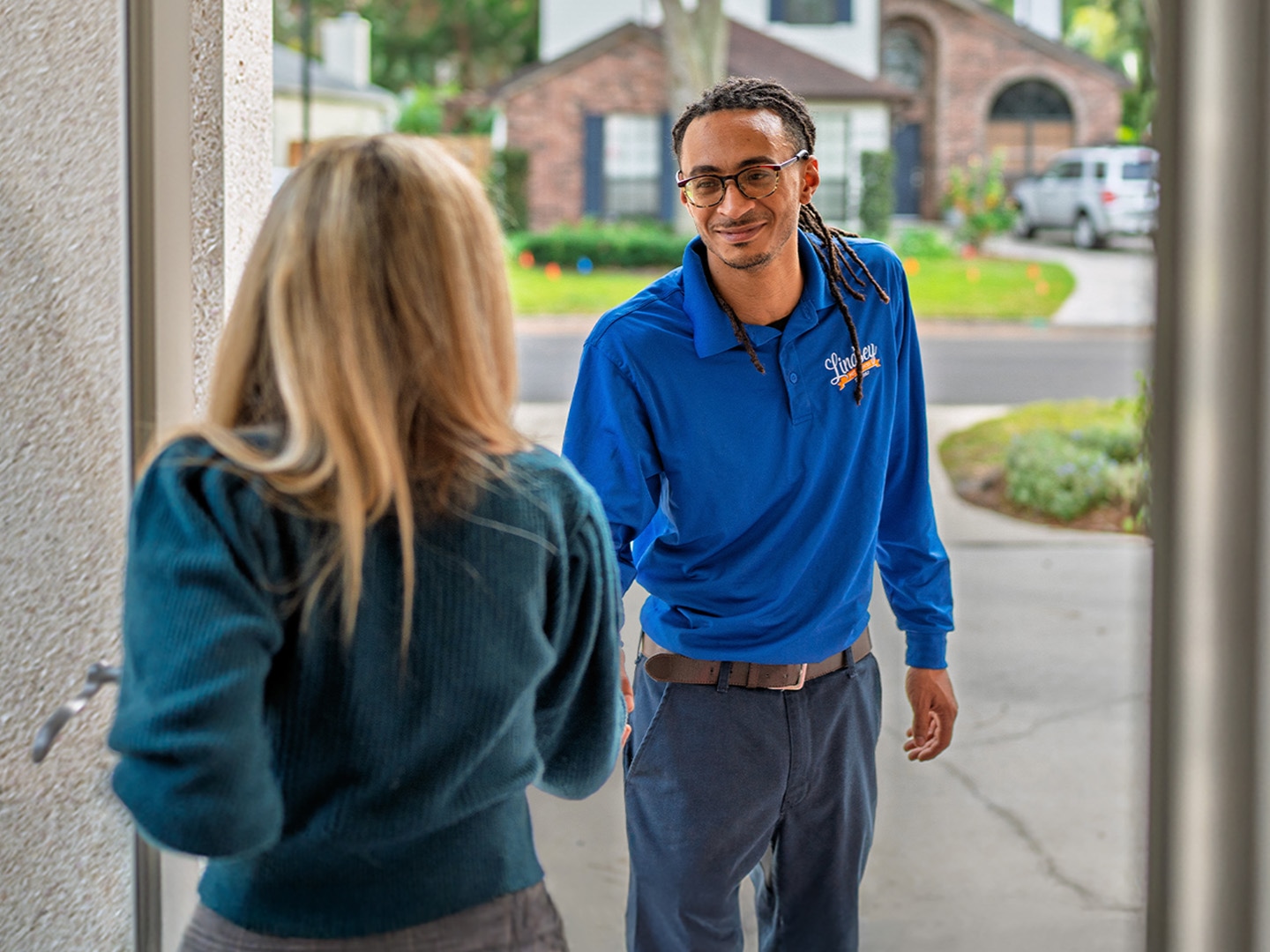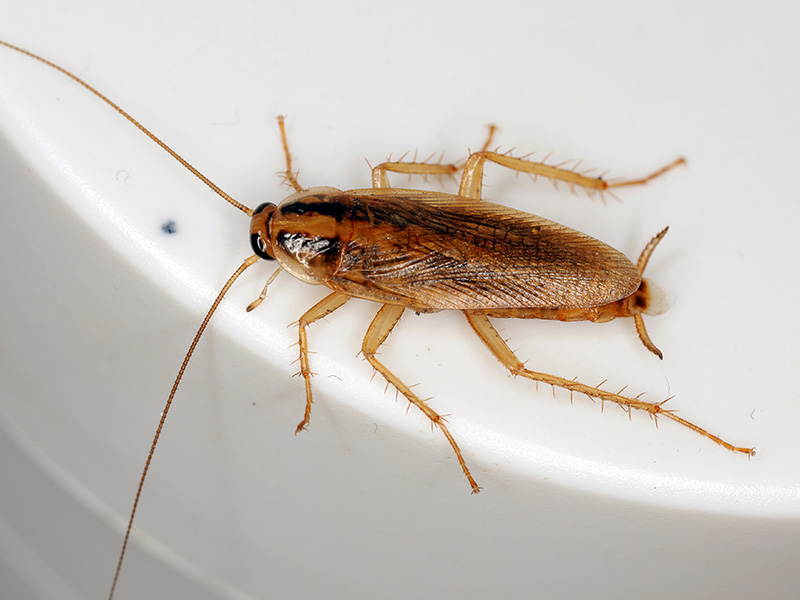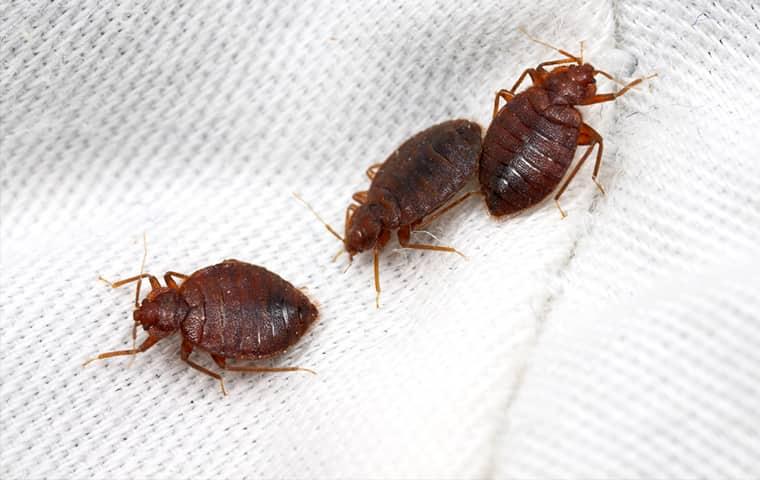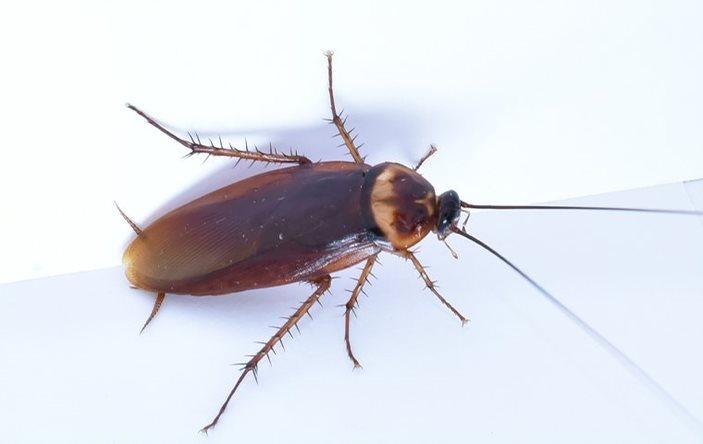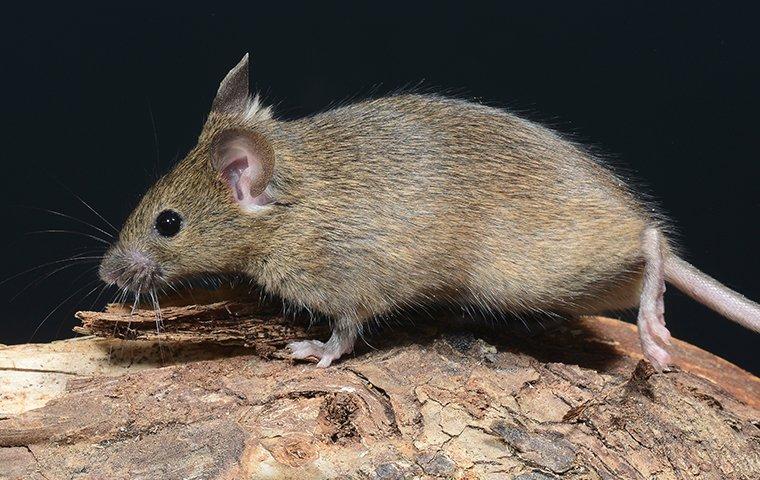Why Fleas Are a Constant Problem in Jacksonville
Florida, known for its warm climate and abundant wildlife, is an ideal breeding ground for many pests, including fleas. These tiny, blood-sucking parasites are a constant problem for pet owners and homeowners alike. In this article, our local pest control company will delve into why fleas are so prevalent in Jacksonville, St. Augustine, and throughout Florida, how they are introduced onto properties, their dangers, effective prevention strategies, and why professional control is often the best solution for flea infestations.
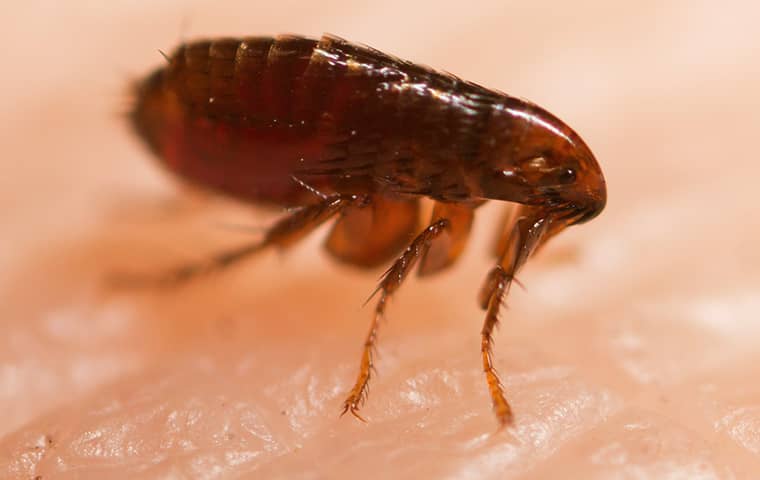
Why fleas thrive in Florida
Our climate is a primary factor contributing to the persistent flea problem. Fleas thrive in warm, humid environments, and Florida’s climate provides the perfect conditions for fleas to breed and multiply. Unlike in colder regions, where flea populations die off or go dormant during the winter, Florida’s mild winters allow fleas to remain active year-round. This continuous life cycle results in constant pressure on households and pets.
The abundant wildlife, including rodents, raccoons, and opossums, often harbors fleas. These wild animals can bring fleas onto properties, exacerbating the problem. Moreover, the state’s high population of domestic pets provides ample hosts for fleas to feed on and reproduce.
How fleas are introduced onto properties
Fleas can be introduced onto properties in several ways:
- Pets
The most common way fleas enter homes is through pets. Dogs and cats can pick up fleas from other animals or infested areas and bring them indoors. Fleas can jump onto pets during walks, parks, or even backyard visits. We should also point out that stray cats and dogs could also be the source of fleas in the yard. - Wildlife
As mentioned, wild animals can carry fleas. When these animals visit yards or homes searching for food or shelter, they can drop flea eggs and larvae, leading to an infestation. - Humans
Although less common, humans can also inadvertently bring fleas into the home. Flea eggs and larvae can hitch a ride on clothing or shoes, especially if someone has been in an infested area. - Used furniture, carpets & other secondhand items
If these items are infested, buying second-hand furniture, rugs, carpets, or other used items can introduce fleas into a home.
The Dangers of fleas
While fleas are often regarded as a mere nuisance, they pose several health risks to both humans and pets:
- Bites and allergic reactions
Flea bites can cause severe itching and discomfort. Some individuals and animals may develop allergic reactions to flea saliva, leading to intense itching, skin infections, and, in severe cases, flea allergy dermatitis. - Disease transmission
Fleas can carry and transmit diseases to humans. They can spread bacteria that causes diseases such as cat scratch fever, typhus, and plague. Yes, the plague is still around. In July 2024, Colorado officials confirmed a human case of the plague.
Pets infested with fleas are also at risk of developing tapeworms if they ingest fleas carrying tapeworm larvae.
- Anemia
In severe infestations, especially in young or small animals, the constant blood loss from flea bites can lead to anemia, a potentially life-threatening condition.
How to prevent flea infestations
Although preventing fleas is easier than getting rid of them, it requires a multi-faceted approach. Here’s what we suggest:
- Take care of your pets first
The first line of defense against fleas is maintaining regular veterinary pet care. This includes using flea preventatives prescribed by your vet. Regular grooming and bathing can also help reduce the risk of fleas. - Keep your yard picked up
Keeping the yard clean and well-maintained can deter rodents and other wildlife and reduce flea populations. This includes mowing the lawn regularly, removing leaf litter and debris, and securely covering garbage. - Maintain a clean home
Regular vacuuming of carpets, rugs, and upholstery can help remove flea eggs and larvae from the home. Washing pet bedding in hot water and drying it on high heat is also essential. If pets are allowed to sleep on human beds, wash bedding regularly and vacuum the mattress routinely.
Why professional flea control is the best choice
Despite the best preventive measures, flea infestations can still occur and become overwhelming. In such cases, professional flea control is often the best solution. Here are a few reasons why:
- Expert knowledge
Pest control professionals understand flea biology and behavior. What’s more, they have the expertise to evaluate the extent of the infestation and determine the best treatment method to target all flea life stages. - Effective treatments
Specialists have access to and know how to use professional-grade flea products far superior to the ones available over the counter. Moreover, licensed exterminators know where to treat the problem and exactly how much product to use to target it. - Comprehensive approach
A comprehensive approach is essential to effectively getting rid of fleas. Pest control experts treat the house and yard, while property owners must consult with their vets to determine the most effective flea preventative for their pets. Failing to address both areas simultaneously will likely lead to re-infestation.
When professional flea control is necessary, Lindsey Pest Services is here to help!
To eliminate fleas that have infested your home and/or yard, contact Lindsey Pest Services at the first sign of a problem. Our local, woman-owned pest control company offers effective flea control in Greater Jacksonville and along the First Coast from Fernandina Beach to Crescent Beach.
When you contact us for help getting rid of fleas, here’s what you can expect:
- A thorough inspection to identify and evaluate the flea problem.
- An interior flea treatment if these biting pests have made it inside.
- An exterior flea treatment to eradicate flea activity in the yard.
- Follow-up flea treatments as determined by the pest control specialist and based on the severity of the problem.
Before our pest control team can treat the property, you must complete some prep work, such as vacuuming furniture and rugs and making a relocation plan for your family and pets. We will provide detailed instructions.
If rodent problems contribute to the infestation, Lindsey Pest Services can help with that, too! Our home pest control plan targets mice, rats, and other house-infesting pests that often invade homes in our region. Check out our Better Plan below or give us a shout!








